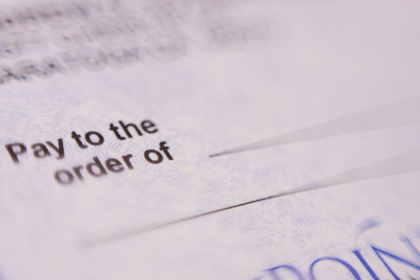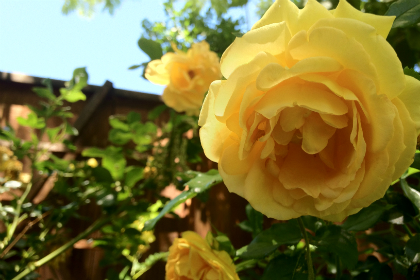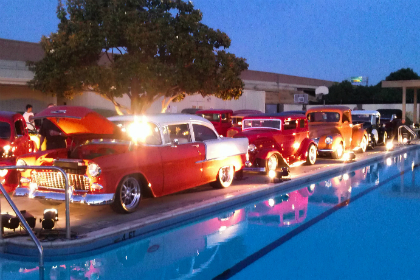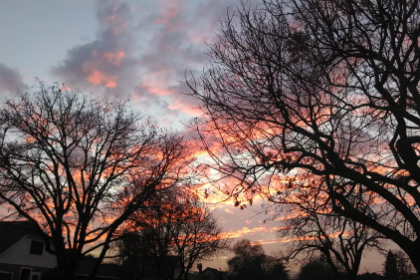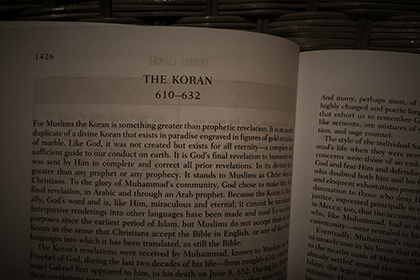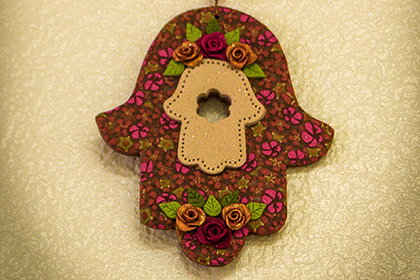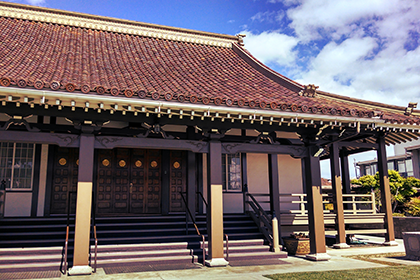Y: The text read “Dude, Coachella is amazing! We’re all having a blast. Wish you were here! Btw, I met this awesome girl and we really hit it off. There’s just one thing… She lives in NorCal.”
I sent that to a close friend only a couple of days after meeting my girlfriend, the love of my life. Now let me back up and tell the story, because she loves it when I do (M: Oh boy, here it comes!!!). I met M for the first time at Los Angeles International Airport. She was joining me and a large group of my friends, including two mutual friends—through whom we were being introduced—on a weekend trip to America’s premier music and arts festival, Coachella (feel free to send us comp’ed VIP passes (M: for life, please) for the plug, Goldenvoice). From the moment we first shook hands, I was charmed. There is an air about her; her smile is warm and contagious, and her aura (if you believe in such things) is always welcoming. From that point on, the weekend became about more than just the music festival, it became about us getting to know one another: flirting, dancing, making each other laugh, and appreciating each show together. It was like packing 30 dates into a single weekend, and every date was even better than the last. I made it a point to look after her in a crowd of a hundred thousand people, because I wanted her to feel at ease and a part of the group. It must have made a good impression, because despite some of my more nervous moments, we kissed during one of her favorite acts, the Postal Service, and by the end of the weekend neither of us were prepared to let the other go.
M: It’s true. He took care of me all weekend in a group where I only knew two others and that was more than enough to keep me interested. He was pretty much assigned to take care of me before we even knew each other and didn’t sweat about it even once. He also took me to see my favorite musician when no one else wanted to go, even though he didn’t know of him. Consider it our first date. I tried to return the favors as much as I could but really, it wasn’t enough; he was on point with everything. He even played Radiohead for me every drive back from the festival so I could sing off key. After the festival was over, I promised to introduce him to my favorite band, Tool and well, let’s just say he was most impressed that the song had a sound bite featuring Bill Hicks, one of his favorite comedians. Last weekend, we returned from our first anniversary celebration, guess where? Coachella! There is no other more perfect scenario for us to celebrate our love: music, dancing, great friends, amazing art and good food. Sums us up pretty well.
Here’s something we’ve both heard from other people more times than we can count…
“You’re in a long distance relationship?” *deep nervous inhale* “Wow, that must be, like, super hard. I could never do that. Good luck…”
Oh gee, thanks but I actually don’t need any luck because I’ve never been happier. In fact, we’ve been in an incredibly successful, unicorn-tears kind of magical long distance ‘agreement’ (Y: as she likes to call it) for a full year now. The distance? Exactly 300 miles between NorCal and SoCal. Luckily there isn’t much of a sports rivalry as I like ice hockey (SHARKS TERRITORY!) and he prefers basketball (Y: LAKERS BABY!) Though I did drunkenly lash out on him being from LA when the Kings knocked the Sharks out of the playoffs last year. And how did he respond? By sending me a beautiful bouquet of flowers to my office with a note that read: “Dear M, my deepest condolences for your loss. I hope these flowers brighten your day the way you do all of mine. Can’t wait to see you again. Yours, Y.”. Chivalry… not dead, my friends. And that is when it really sunk in that I need to hold on to this amazingly special gentleman.
Y: WARNING: Here’s the thing about long distance relationships—they are not for every couple. Really, they aren’t for most. People are wary of them, including us. And for good reason: they don’t typically work. I had never been in one before, and she had tried it twice with really poor results over half a decade ago. All it takes is half an instinct of insecurity to hit you, coupled with a dead cell phone battery, maybe a half bottle of wine, and/or some Facebook stalking, and next thing you know you’re in world war relationship. M and I, insecurities and flaws aside, trust each other implicitly. Even more importantly, we love each other (queue the feign heaving and eye rolling) unconditionally (M: so far, so good  ) . We’re both independent people who are incredibly social and have many loved ones to tend to. We understand that we each need space and time to pursue our own interests and have our own fun. There is a genuine exchange of mutual support for everything we do. So above any tips, tricks, or special anecdotes we share, remember that if you’re not continuously head over fucking heals in love with your long distance love, your relationship is headed for the rocks. That’s not to say we don’t fight (I am a man, after all, and it’s my first real relationship as an adult: I’m bound to fuck up a little) but we’re quick to make amends, and always show each other respect.
) . We’re both independent people who are incredibly social and have many loved ones to tend to. We understand that we each need space and time to pursue our own interests and have our own fun. There is a genuine exchange of mutual support for everything we do. So above any tips, tricks, or special anecdotes we share, remember that if you’re not continuously head over fucking heals in love with your long distance love, your relationship is headed for the rocks. That’s not to say we don’t fight (I am a man, after all, and it’s my first real relationship as an adult: I’m bound to fuck up a little) but we’re quick to make amends, and always show each other respect.
M: ^What he said… and it’s not about the distance, it’s about the people involved in the relationship. We’re grateful to have each other regardless of the constant physical presence. But of course it’s tough for us sometimes. It’s standard procedure for me to bawl on him before we part after yet another incredible visit. It’s not being able to partake in the mundane everyday activities you’re ‘supposed’ to do with your partner that makes long distance as hard as it’s hyped up to be. Also, not being able to be there for each other physically in tough times or special moments (doctors’ appointments, him moving into his new home, holiday parties, even actual birthdays—thanks for being born a day before Thanksgiving, guy…) can easily strain a relationship, so you need to get creative and accept the reality that you will have to celebrate it a different day to compensate.. But luckily we are always looking for excuses to party so we never skip occasions.
The good news is we take each other for granted much less. Every time we see each other, it’s a mini blissful vacation and we are just with one another 100% because our time together is so precious. Menial tasks like groceries and laundry become enjoyable. But then again we are party people and sprinkle fun into everything so perhaps that’s just us. We rarely ‘fight’ because neither of us can show up at the door to kiss and make up… it’s exponentially more painful being away from each other and not communicating because both parties are being stubborn about coming to a truce. Luckily he is practically ego-less and I can’t stay upset when he keeps showering me with warmth and love.
One time the Mr. was having an extremely hectic Murphy’s law kind of day, so I stole a genius idea from a friend: I called a nearby massage parlor and booked him his first ever hour long deep tissue full body rub down (I threatened the masseuse not to go near his-MY goodies), paid for it over the phone, and called him to tell him he’s to show up there immediately after work. And the moment he arrived back home, a delivery guy arrived with Thai food. I scored big time.
Y: It was by far the sweetest and most thoughtful thing anyone has ever done for me. Take note ladies, don’t go by those bullshit tips in Cosmo, This is how to keep your man happy. Anyway, that following afternoon, she wasn’t feeling well and had an unpleasant doctor’s appointment, so I returned the favor by having pizza, pasta, salad, peach soda, and two different desserts delivered to her home.
And while we’re on the topic of food—one of our favorite things to do is stuff each other’s faces. She will literally have a spoon full of food in front of my face while I’m still chewing the last bite. While she is vegetarian and I am… well, not, I still love sharing food with her, because it’s such a pleasurable experience (with acceptable public moaning to boot) that we get to immerse in together. We even eat together over Skype. Shared pleasures should go beyond the bedroom, and certainly should be relished together even if from afar. Like communication and-
M: -LAUGHTER! Jinx, you owe me a soda! I win. It’s important to be connected constantly and to share a great sense of humor. We’re lucky this works for us because we are of the kind that despise constant texting/phone calls. But, our sheer adoration of each other trumps that hard. And we are always laughing, oh man do we laugh… like hyenas on meth. Why we are glued together from a 300-mile distance is because the hilarity makes the constant contact much more appealing. We’ve had an ongoing conversation for the last year now: emails, chat, texts, phone calls, Skype, and, get this, over a 100 handwritten letters (multiple every single week)… I mean, how can you not die laughing (warning: grown up jokey time): Y was on speaker phone while I was doing yoga, and I said, “I’m lying here in child’s pose for 15 minutes because my health guru told me so…” and he goes “Why don’t you come here and get into adult’s pose with me?” Needless to say I keeled over in a perfect transition from child’s pose to fetal position guffawing. There is also a lot of shit talk, which leads to hilarious conversations we wish we could record to share with the world. I was teasing him about how I annihilated him playing foosball on an epic bar arcade date we had one night (we tag teamed killing zombies and yes, he died first. Milla Jovovich taught me some tricks… He’s lucky I love him enough to protect him during the apocalypse. Y: I sacrificed myself for you, chivalry does still exist, remember! M: See what we mean about shit talk…), and I started laughing maniacally, followed by heavy coughing due to diseased flu lungs… and I said to him, “You’re choking me from afar.” And this Star Wars newbie (it’s true, he watched it at the tender age of 28 thanks to yours truly) responds, “I find your lack of faith disturbing.” To which I retort, “I find you fucked up!” To which we both responded with fits of laughter. You get the point. We’re pretty quickwitted folk.
So the bottom line is that apparently you can fall in love and make it last at a music festival and in long distance… with humor, creativity, constant communication, distance pampering, and truckloads of love. Oh, and to end… here’s 2 nightmare-ish pictures he drew of us (Tim Burton would be proud) because he thought it would be romantic. We’ll let you decide which one is attempt #1 and #2. In the words of the Moldy Peaches, we sure are cute for two ugly people…
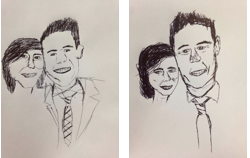
1 & 2
Long live (long/all distance) love,
Y&M
